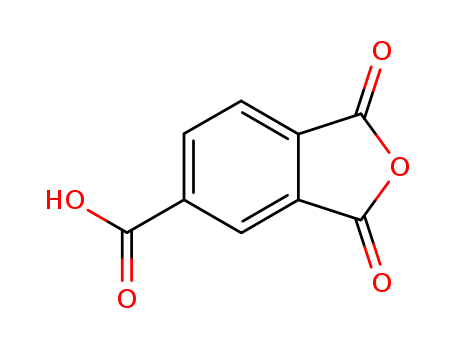- Product Details
Keywords
- Capecitabine
- 154361-50-9
- C15H22FN3O6
Quick Details
- ProName: Capecitabine
- CasNo: 154361-50-9
- Molecular Formula: C15H22FN3O6
- Appearance: white powder
- Application: API
- DeliveryTime: within 3-7 day
- PackAge: As required
- Port: shanghai or other
- ProductionCapacity: 5 Metric Ton/Month
- Purity: 99%
- Storage: Store in dry, dark and ventilated plac...
- Transportation: by sea or by air
- LimitNum: 1 Kilogram
Superiority
Changzhou Xuanming Chemical Co., Ltd. is dedicated to the technology development, manufacturing, import and export chemicals, which are specialized in pharmaceutical intermediates, pesticide intermediate, industry of fine chemicals and custom synthesis. Now, we enjoy good reputation among customers and take favorable market share in domestic and at abroad.
Changzhou Xuanming Chemical CO., LTD is located in Northern Jiangshu Industry Park, we have modern manufacture bases and some laboratories, which can supply the key intermediate for your projects, and short your synthesis scheme and supply you a reference compound for bioassay or a high purity analytical standard. We have been abided by “treat technology as first, quality as basis, customers as God, and be honest and sincere”. It is our final aim to provide environmental and high technological products and meet customers’ requirements according to keep effors on developing new chemical fields.
Changzhou Xuanming Chemical CO., LTD promises to help you with heart and soul.


Details
| Capecitabine Basic information |
| Product Name: | Capecitabine |
| Synonyms: | Capcitabine;Pentyl (1-((2R,3R,4S,5R)-3,4-dihydroxy-5-methyltetrahydrofuran-2-yl)-5-fluoro-2-oxo-1,2-dihydr;5'-DEOXY-5-FLUOROCYTISINE;5'-DEOXY-5-FLUORO-N-[(PENTYLOXY)CARBONYL]CYTIDINE;CAPECITABINE;RO-9-1978;pentyl [1-(3,4-dihydroxy-5-methyl-oxolan-2-yl)-5-fluoro-2-oxo-pyrimidin-4-yl]aminoformate;XELODA |
| CAS: | 154361-50-9 |
| MF: | C15H22FN3O6 |
| MW: | 359.35 |
| EINECS: | 604-948-1 |
| Product Categories: | Inhibitors;Cardiovascular Drugs;Active Pharmaceutical Ingredients;Antineoplastic;Bases & Related Reagents;Intermediates & Fine Chemicals;-;Nucleotides;Pharmaceuticals;Antineoplastic drug, 5-FU analog;Anti-cancer;API;XELODA |
| Mol File: | 154361-50-9.mol |
|
|
|
| Capecitabine Chemical Properties |
| Melting point | 110-121°C |
| Fp | 87℃ |
| storage temp. | -20°C Freezer |
| solubility | H2O: soluble10mg/mL, clear (warmed) |
| form | powder |
| color | white to beige |
| Merck | 14,1754 |
| InChIKey | GAGWJHPBXLXJQN-UORFTKCHSA-N |
| CAS DataBase Reference | 154361-50-9(CAS DataBase Reference) |
| Safety Information |
| Hazard Codes | T |
| Risk Statements | 45-60-61-68 |
| Safety Statements | 53-22-36/37-45 |
| WGK Germany | 3 |
| RTECS | HA3852500 |
| HS Code | 29349990 |
| Hazardous Substances Data | 154361-50-9(Hazardous Substances Data) |
| Capecitabine Usage And Synthesis |
| Indications and Uses | Capecitabine is a new form of oral fluorinated pyrimidine drug. Capecitabine was developed by Roche Pharmaceuticals, and its commercial name is Xeloda. Capecitabine can change in vivo into 5- FU, an anti-metabolizim fluorine pyrimidine deoxynucleoside carbamate drug that targets cancer cells to inhibit cell division and disrupt RNA and protein synthesis. Its effects are significantly tied to the level of TP enzyme expression in neoplastic tissue and to DPD enzyme in vivo expression. It is suitable as further treatment for advanced primary or metastatic breast cancer patients who have not responded to paclitaxel or anthracycline antibiotics. As an anticancer drug, it is mostly used to treat advanced primary or metastatic breast cancer, as well as in treatment for non-small cell lung cancer, pancreatic cancer, bladder cancer, rectal cancer, colon cancer, gastric cancer, and other solid tumors. Many drugs such as taxanes (paclitaxel, docetaxel, mitomycin, cisplatin, etc.) can increase TP enzyme expression in neoplastic tissues and also have curative effects on gastric cancer. When used in combination with Capecitabine, these drugs can also improve Capecitabine’s anticancer abilities and produce synergistic effects. |
| Clinical trials | Analyses of nearly 400 randomized comparisons of clinical outcomes show that a combination of adriamycin, cisplatin or oxaliplatin with 5-FU, compared to a combination of these drugs with Capecitabine, has a two-fold difference in curative efficacy and lowers toxicty. A large-scale Chinese clinical trial of Capecitabine in combination with DDP in the treatment of stage II gastric cancer also proves its advantages of high efficacy, low toxicity, and affordability. |
| Drug interactions |
Currently, there are no side effects of clinical significance when used in combination with antihistamines, NSAIDs, morphine, paracetamol, aspirin, antiemetic drugs, and H2 receptor antagonist drugs. Capecitabine’s binding rate with serum protein is relatively low (64%), and its possibility of interacting through substitution with drugs that bind closely with proteins is currently unknown. In external experiments, Capecitabine has not shown any influence on human liver microsomal P450 enzyme. If any phenytoin and coumarin derivatives anticoagulants are used in combination with Capecitabine, dosages should be lowered. |
| Adverse effects | Common adverse reactions include nausea, vomiting, oral ulcers, abdominal pain, diarrhea, loss of appetite, and skin changes. There have also been reports of some patients experiencing transient myelosuppression, hair loss, tears, headache, and dizziness. |
| Warnings and precautions |
Capecitabine is a bone marrow inhibitor; a blood exam must be administered before every usage to monitor blood cell and platelet count. This product poses toxic side effects to the liver, so liver functions must be routinely examined. Additionally, heart functions should also be monitored to prevent irreversible toxic reactions. If venous transfusion of the drug is required, the aforementioned organ functions should be tested for suitability before administration. Capecitabine may cause damage to embryos, thus making it unsuitable for pregnant women. Women using this drug are also not suitable for pregnancy. Even after treatment is ended, this drug may have some impact on fertility. |
| Description | Capecitabine is a new oral fluoropyrimidine carbamate for patients with advanced neoplastic disease, approved as Xeloda for the treatment of refractory metastatic breast cancer after failure on Paclitaxel and an anthracycline-based chemotherapy regimen ; it is a prodrug of doxifluridine (5-fluorouracil ; 5-FU) activated by a cascade of 3 enzymes concentrated in human liver and cancer tissue, resulting in the selective release of 5-FU at the tumor site and offering a prolonged tumour exposure to 5-FU. Oral Capecitabine passes intact through the intestinal mucosa, is converted first by carboxylesterase to 5'-deoxy-5- fluorocytidine in the liver, then by cytidine deaminase to 5'-deoxy-5-fluorouridine in the liver and tumour tissues and finally by thymidine phosphorylase to 5-FU in tumors. Therefore, Xeloda is much safer and more effective than 5-FU (for example, in the HCT116 human colon cancer and the MX-1 breast cancer xenograft .models). |
| Chemical Properties | Colourless solid |
| Originator | Roche (Switzerland) |
| Uses | An antineoplastic agent. A prodrug of doxifluridine. |
| Uses | Capecitabine is an antineoplastic agent. Capecitabine is a prodrug of Doxifluridine (D556750). |
| Uses | An antiproliferative 5-fluorouracil releasing compound |
| Definition | ChEBI: A carbamate ester that is cytidine in which the hydrogen at position 5 is replaced by fluorine and in which the amino group attached to position 4 is converted to its N-(penyloxy)carbonyl derivative. Capecitabine is a antineoplastic agen used in the treatment of cancers. |
| Brand name | Xeloda (Roche). |
| General Description | The drug is available in a 150- and 500-mg tablets for oraluse. This drug is a fluoropyrimidine carbamate prodrugform of 5-fluorouracil (5-FU). It is used to treat breast cancerand colorectal cancer. The drug is converted to 5-FU bythe enzyme thymidine phosphorylase following esterase activity to hydrolyze the carbamate moiety and deamination.Capecitabine is readily absorbed by the GI tract, and peakplasma levels of 5-FU occur about 2 hours after oral administration.Indications, drug interactions, and toxicities areequivalent to those of 5-FU. |










